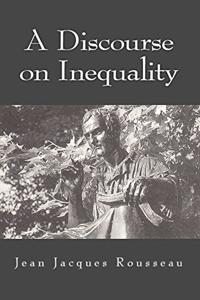
Want to learn the ideas in Discourse On The Origin Of Inequality better than ever? Read the world’s #1 book summary of Discourse On The Origin Of Inequality by Jean-Jacques Rousseau here.
Read a brief 1-Page Summary or watch video summaries curated by our expert team. Note: this book guide is not affiliated with or endorsed by the publisher or author, and we always encourage you to purchase and read the full book.
Video Summaries of Discourse On The Origin Of Inequality
We’ve scoured the Internet for the very best videos on Discourse On The Origin Of Inequality, from high-quality videos summaries to interviews or commentary by Jean-Jacques Rousseau.
1-Page Summary of Discourse On The Origin Of Inequality
Overview
Jean-Jacques Rousseau’s essay on the origin and basis of inequality among men often referred to as ‘Discourse on Inequality’ is an inquiry into human nature in civil society. It is divided into four sections, namely Dedication, Preface, First Part and Second Part.
Rousseau begins by praising Geneva, his home city. He describes it as an ideal society with just laws and a harmonious community spirit. The State of Geneva maintains peaceful relationships with its neighbors and is not threatened by them because it doesn’t threaten them either. Rousseau’s description of the city was far from accurate, but he used it to create an alternative vision for Paris, the city where he had lived for some time before writing this work.
The author begins the preface by stating that there is nothing more important than studying humanity. The study of mankind is more interesting and difficult than any other subject in the world. He also says that it was a precept from Delphi, which was harder to follow than all other books written on ethics by philosophers. It’s high time for us to study mankind because we are gradually becoming less primitive with advancing scientific discoveries and technological inventions.
According to Rousseau, there are two kinds of inequality among the human species. The first is natural or physical inequality, which consists in a difference of age, health, bodily strength and the qualities of mind or soul. The second one is moral or political inequality; it depends on a kind of convention and is established by consent of men. It’s useless to look for reasons for natural inequalities because they’re self-explanatory so he focuses on the second kind. He says that his purpose in this essay is “to mark in the progress of things, the moment at which right took place of violence and nature became subject to law” as well as explain how “the strong submitted to serve weak people and people purchased imaginary repose at real felicity”.
In the first part, Rousseau begins to dissect a natural man because he thinks it’s important to “judge rightly of the natural state of man, to consider him from his origin, and to examine him as it were in the embryo of his species.” He doesn’t elaborate on how humanity progressed from this primitive state. What interests Rousseau more is self-love (Original French: amour propre). This love for oneself is what drives all actions in the natural state. It also causes humans to avoid conflicts with other animals or humans out of self-interest. In addition, people are driven by their own needs and wants. They sleep wherever they can find shelter at night and eat whatever food they can find during the day. The author describes them as savages who are distinguished by physical differences caused by nature itself. For example, some babies come into this world healthy while others have birth defects that make them less desirable than others.
However, what separates man from the rest of the animal kingdom is his capacity for perfection and freedom. Perfectibility means learning new things by observing others or nature itself. Freedom is defined as overcoming a natural instinct. In contrast to Hobbes’ savage, Rousseau’s Natural Man cannot conceive of death because he lacks reasoning abilities.
The Second Part begins with a dramatic scenario that describes the first time anyone owned property, and how it was an important moment in history. Rousseau explains how this private property led to inequality among modern humans. As long as people were satisfied with their rustic needs, they were happy and equal. However, once people began acquiring things for themselves, such as food and shelter, inequality became apparent. This is because there are now some who have more than enough while others don’t even have the necessities of life.






